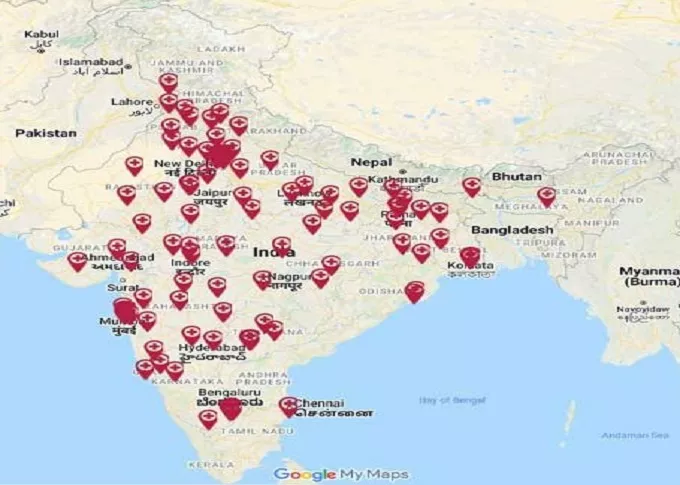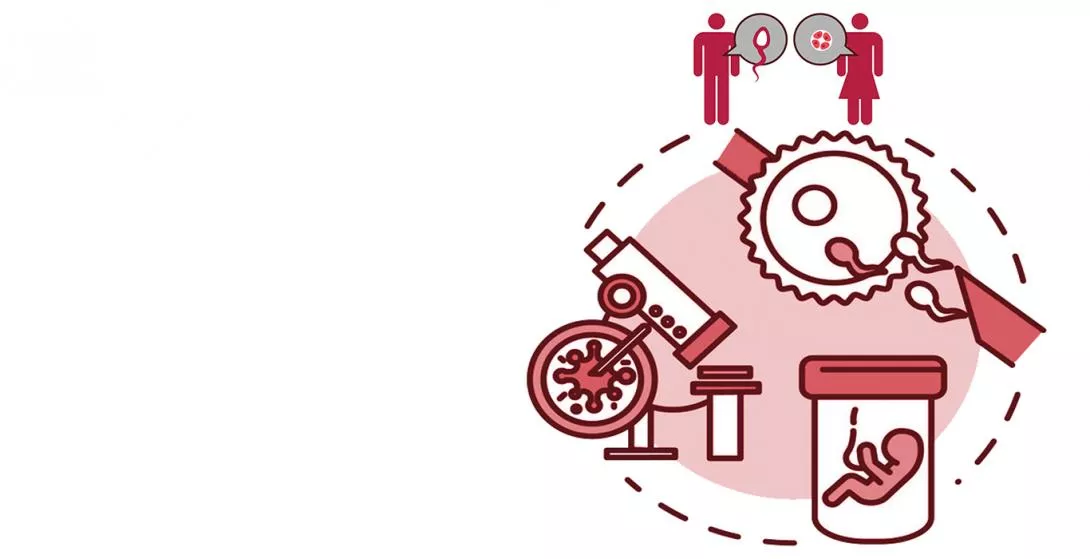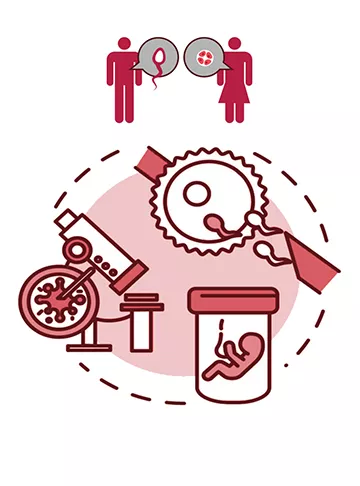Treatment Details
IVF treatment is required in cases where the patients have primary infertility, that is, the inability to conceive naturally or secondary infertility, that is, the inability to have children after conceiving naturally in the past. It can be due to underlying conditions in either the female or male partner, or both. Some conditions for which IVF is recommended are as follows:
Damage or blockage in the fallopian tube
Fallopian tube is the location where fertilisation takes place in the female anatomy. A damage or blockage here would mean that the mature egg isn’t able to follow the course of journey through the fallopian tube and of the fertilised product, embryo, into the uterus.
Ovulation disorders
Ovulation is the phenomenon when a mature egg exits the ovary, ready to be fertilised by a sperm. Disorders related to ovulation would mean the absence of an egg during the fertile period hence, no embryo is formed naturally. This is a reason for infertility.
Endometriosis
Endometriosis is the condition in which endometrium – the tissue lining the uterus – grows outside it. This has been found in 10-15% women in the reproductive age and impacts various fertility parameters such as less number of viable eggs (low ovarian reserve), poor quality of eggs and embryo, as well as hindrance to implantation.
Uterine fibroids
These are non-cancerous tumours that grow in the uterus of females of childbearing age. They can be found be in varied sizes and in different parts of the uterus. Higher levels of hormones oestrogen and progesterone can cause these growths. They increase the risk of pregnancy loss, and are a contributor to infertility in women.
Poor Egg Quality
Poor egg quality can be a result of a low ovarian reserve. After fertilisation at the fallopian tube, the embryo moves downwards and implants itself on the wall of the uterus. When the egg of poor quality – genetically and otherwise – implantation fails to take place since the quality of embryo is also compromised. This embryo with chromosomal abnormalities is discarded by the body and may lead to a miscarriage. Poor egg quality is a leading cause of infertility in females over 35 years of age.
Reduced fertility in females over the age of 40
The reproductive window in females spans the duration of menarche (the start of menstruation) to menopause (the cessation of menses). As one ages, and especially after the age of 35, fertility significantly decreases. This is because the quality and quantity of the eggs contained in the ovaries decreases. Once age 40 is hit, ovarian reserve is significantly reduced, and the chances of miscarriage shoot up. Since IVF treatment ensures that only the genetically healthy embryos are used, health risks due to pregnancy at an advanced maternal age can be averted.
Impaired sperm production or function
Sperm is the male gamete and a compromise in its quality and/or decrease in its quantity is a cause of infertility in men. If the number of sperms is less or their functionality is not optimal, fertilisation cannot take place and hence, being a reason for infertility in men.
Inability of sperm to survive in cervical mucus
Cervix is the tunnel-like part of the female genitalia that connects the vagina and the uterus. If cervical mucus is abnormal, it can provide hindrance to the motility of sperms or even cause their destruction. Thus, fertilisation would not occur, and would point toward infertility.
Genetic diseases
In case either or both partners have genetic diseases that may be inherited by their offspring, an IVF cycle can put checks in place to ensure that a genetically robust embryo is implanted. This can be done by tests such as preimplantation genetic testing and the more advance non-invasive preimplantation genetic testing that looks into the chromosomal content of the embryo. Thereafter, only embryos that do not have any abnormal genetic content is implanted hence, avoid passing on inherited disorders to the child.
Unexplained infertility
In certain cases, the exact cause of infertility is not easily ascertained. Such cases can be treated with IVF technique as a deep dive is done into the patients’ health, any existent conditions are treated, and then the rest of the procedure follows.
Pregnancy Calculator Tools for Confident and Stress-Free Pregnancy Planning
Get quick understanding of your fertility cycle and accordingly make a schedule to track it
Get a free consultation!















